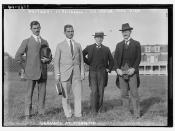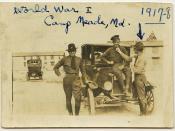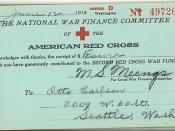The First World War happened to have also affected the civilians, instead of only the army, in various different ways. It affected in various ways, such as disease, civilians being attacked and the destruction of cities.
The soldiers that fought at the trenches were getting various diseases from the bad water, dead bodies and barbed wire. These diseases (Malaria, Cholera, Tetanus), were spread into the cities and affecting the civilians, making them lose their lives. Remember that in the Great War the amount of death was so huge that most of the corpses were piled up and left on the ground; after a while the corpses rotted and the odour attracted mosquitoes which then carried malaria stings stung the civilians, killing massive amount of people. The medication at that time was not good enough. The chemicals and the dead bodies polluted the air and the water. Disseminates like mice and mosquitoes carried the diseases; when they bit people, they spread the disease.
So people died from the disease like influenza, there was no way that they could be healed.
People died because of hunger. The field couldn't grow crops any more, but the people at the battlefront needed energy to fight, so most of the foods were sent to the battlefront to support the armies. So the people who were not in the armies, like children, women and elders didn't have enough food to keep them alive. However, the food also wasn't enough for the soldiers either, some of them died because of hunger before they could kill their first enemy.
The U-Boat factor concerned the Germans sinking all the ships that were on their way to England with food. This affected the civilians badly because it affected their feeding and they were dying of hunger.
Many cities were also...



On the right track.
This is an ok essay for a 10th grade student. I would like to suggest that maybe a better focus on discussing a smaller group of issues surrounding WW1 would have added a better understanding of what really happened and would have painted a better picture.
2 out of 2 people found this comment useful.